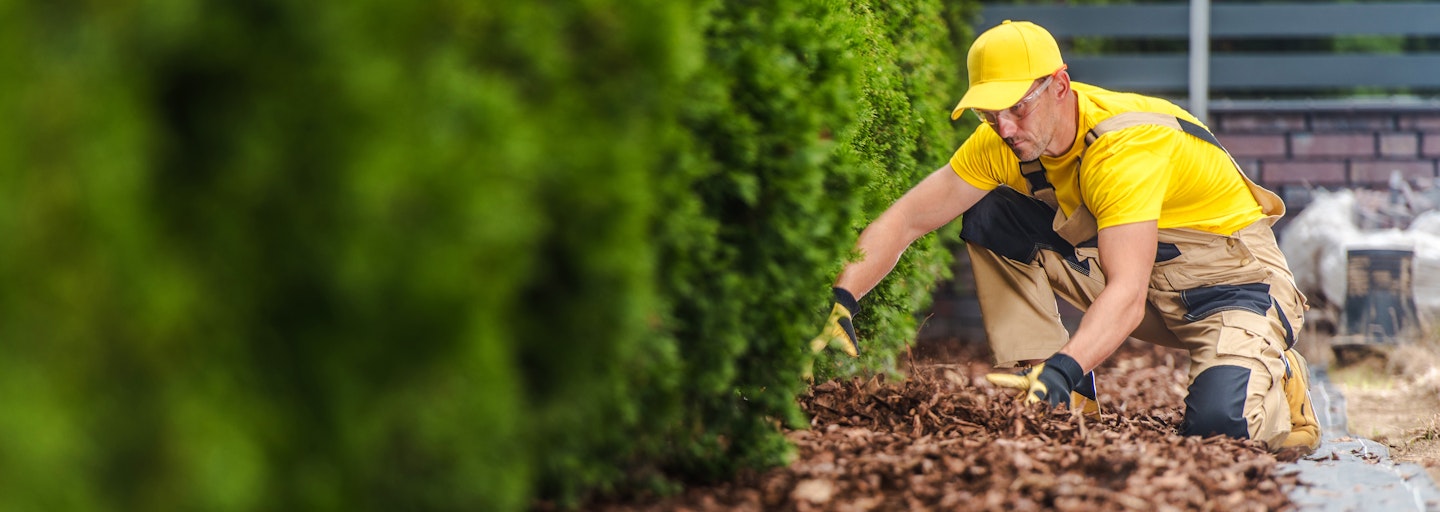5 tips for safe commercial landscaping
We love supporting successful New Zealand growing and landscaping projects with the products and supplies we produce. However, garden environments can pose risks. We've laid out some precautions and considerations to reduce risk and stay safe for successful projects.
Fire resistant plants
A priority for homeowners is to feel safe in their homes. They may think about fire hazards and risks inside the home but could potentially forget to think about the risk outside their home. Landscapers can reduce this risk by considering fire-resistant plants and landscaping materials when sourcing supplies, especially for properties close to forests or bush. Fire Emergency NZ has laid out a list of plants that can reduce fire risk.
Potential health risks when handling product:
Legionnaires' disease
Like everything, there are some health risks involved when using organic materials. These include unwelcome organisms such as tetanus and Legionnaires' disease. Legionnaires' disease occurs naturally in the environment. It can be present in soil, compost, and potting mix. While it is rare and healthy adults can become immune, precautions should be taken for those with low immunity or with chronic illness, including smokers. Download the most current Legionnaires' quick guide from WorkSafe NZ for best safe landscaping practices.
Discuss the risks and risk mitigation with your staff and customers
Give staff and customers access to fact sheets and the WorkSafe NZ website for the most current information
Display fact sheets and warnings in appropriate areas
Water gardens and composts gently, using a low-pressure hose
Store bags of potting mix, soil, and compost out of direct sunlight
When potting plants, wet the soil to reduce dust
Educate homeowners on using a gentle spray when watering
Understand the cautions and warnings labeled on products
Wear gloves when handling mulch, compost, and potting mix
Open bags of mulch, compost, and potting mix slowly and away from the face to avoid inhaling the mix.
Avoid opening bags in enclosed areas
If concerned, wear a dust mask to avoid inhaling dust
Dampen mulch, compost, and potting mixes before use
When working in greenhouses, potting sheds, or indoors, make sure the working area is well ventilated
Provide a cleanup kit with instructions, disposable respirators, water mist bottle, brush and shovel set, plastic bags, and tape to seal the bags and ensure workers know how to use the kit
Wash hands carefully after handling soil and before eating, drinking, smoking, or placing hands near the face
See your doctor immediately if you develop a flu-like illness that is worsening (antibiotics are effective against legionnaires disease if given early)
Carefully clean and cover cuts or scratches
Please review the most current and relevant information on minimising the risk of Legionnaires' disease on the WorkSafe NZ website.
Design a dog-safe environment
Lots of homeowners have animals that regularly spend time in the yard. Putting attention to designing environments that are safe for the entire family will put you above the competition. It can also be helpful to understand any concerns the homeowner has with their particular animal, for example, if there are health or other issues that could impact some of the design features of the landscape environment.
Source plants that are safe and not toxic for animals
Some dogs are difficult with strangers, think about privacy and screening
Plant durable grasses and shrubs
Plant flora that creates a calming environment for both humans and animals, including lavender and rosemary
Finding and reporting pests
The New Zealand government has strict regulations and requirements when it comes to protecting New Zealand's natural environment, which can put a lot of pressure on landscapers. It's important to understand what teams can do to reduce the risk of a biosecurity threat. MPI has put together a list of precautions when gardening. You can find more details on the list below by visiting the MPI website.
Be familiar with types of weeds
Control weeds in your garden
Know about "unwanted organisms" and the rules around plants in that category
Dispose of green waste properly
Don't import plants and seeds (unless you're a seed importer)
Keep a lookout for pests
Overall health and safety
It's not only important to consider the above but to also consider the overall health and safety of the team. Managers can take simple approaches to control and reduce the risk for safe commercial landscaping. Here are some best-practice methods to take to reduce the risk for the overall needs of the business.
Encourage your entire team to get behind health and safety
If the team is involved in managing risk, the more potential it has to be managed
Think and talk about the risks with your team on a regular basis
Stay attentive to ensure everyone understands the risks; how the environment can have an impact, the change in seasons, or even personal or physical limitations
